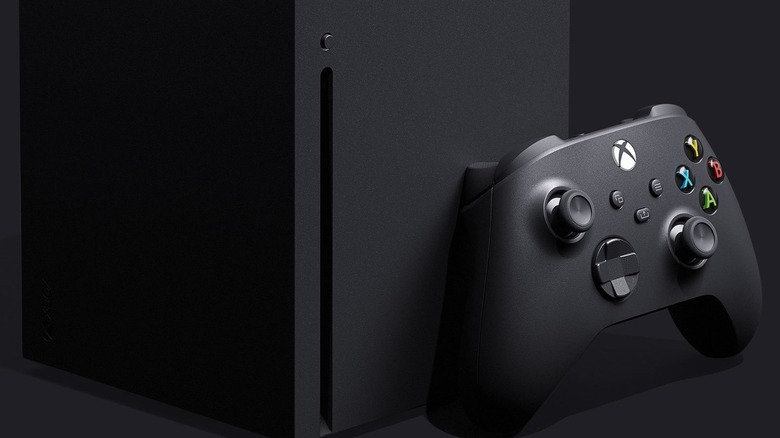Analyst Predicts Bad News For Series X
With the PlayStation 5's design finally unveiled, the next console war is really starting to heat up. We still don't have a price point reveal for either the PlayStation 5 or the Xbox Series X. However, a recent study from an analytics firm seems to have already pinpointed a victor in the race to next-gen dominance.
According to Ampere Analysis (via Game Rant), the PlayStation 5 is set to outperform the Xbox Series X by a large margin. Ampere Analysis estimates that by the end of this year alone, the PlayStation 5 will sell 4.6 million units and the Xbox Series X will sell 3.3 million units. Ampere also expects this trend to continue over the next few years, estimating that the PlayStation 5 will sell 66 million units by the end of 2024, while the Xbox Series X is projected to only move 37 million consoles.
This would seem to continue a trend seen with the current console generation. A financial briefing earlier this year revealed that the PlayStation 4 may have outsold the Xbox One by more than 65 million units, a mind-boggling figure. While Ampere Analysis is in favor of Xbox's branding and messaging toward customers, the firm seems pretty certain that the PlayStation is poised to yet again dominate the console market.
While this latest study takes into account the PlayStation brand's continued popularity, there are a few things that could impact these numbers. For one thing, Sony is reportedly considering a limited release for the PlayStation 5 during its first year of sales. Although the PlayStation 4 sold around 7.5 million units within just the first two quarters of its release, sources say that Sony may ship even fewer PS5 units. According to reports, the initial production run of the PlayStation 5 may be limited to somewhere between 5 to 6 million units during its first fiscal year.
The reasoning behind this seemingly came down to the sheer cost of the PlayStation 5 to manufacture. Analysts expect that Sony will have to sell the console between $450 to $500 to break even. Adding onto this worry is the economic uncertainty brought on by the COVID-19 pandemic, which leads us back to Microsoft's plans for the Xbox Series X.
In a recent interview, Xbox head honcho Phil Spencer said that Microsoft wasn't particularly concerned about the sales performance of the Xbox Series X during its first year of sales. He told BBC News that the company was more concerned with keeping longtime customers and allowing them to upgrade smoothly and at their own pace.
As Spencer explained at the time, "If this is not the year when a family wants to make a decision to buy a new Xbox, that's okay. Our strategy does not revolve around how many Xboxes I sell this year."
In other words, a sales victory for the PlayStation 5 wouldn't exactly change Microsoft's confidence in the Xbox Series X as a platform. It also wouldn't dissuade the company from continuing to support the Xbox One well into the next console generation.
Basically, Ampere Analysis' findings are convincing, but there are a number of other factors that would seem to leave things up in the air. Between the economy being what it is and the way both companies are approaching the launch of their new consoles, the next-gen contest still seems like a toss-up in many ways.
This was acknowledged by Ampere Analysis' Piers Harding-Rolls, who wrote that the findings were "preliminary." He added, "The other big unknown is the impact of the COVID-19 recession on spending for high ticket items in the price range of the new consoles. [Of course] we have the evidence of past recessions ... but this event is unique."
There's also the fact that a disc-less Digital Edition of the PS5 has been announced, and there may be a disc-less Xbox Series X option, as well. These could potentially alter the next-gen landscape, depending on how widely available they are and where they're priced.
It will be interesting to see how both companies ramp up their marketing in the next few months, as well as how price point reveals may impact the interest in both consoles. Even with all of the possible variables in the data, it's truly staggering to see such a divide already taking shape between future console owners. Both consoles are scheduled to finally arrive this holiday season, so we only have a few short months to wait before we see how accurately this study predicted their sales.

